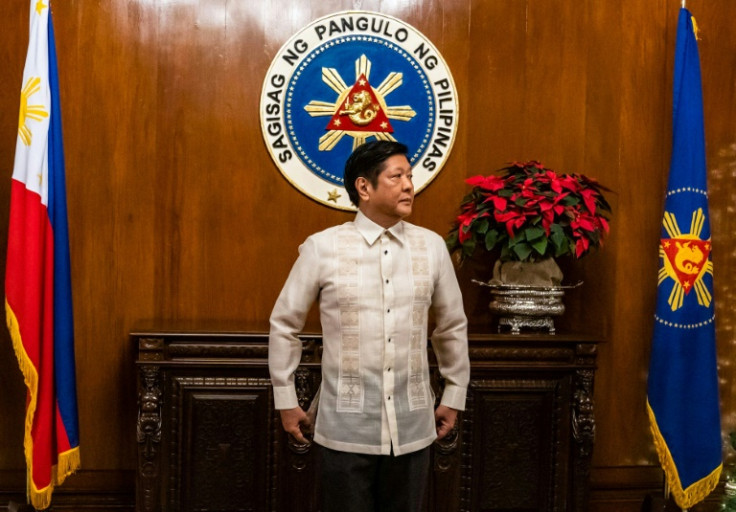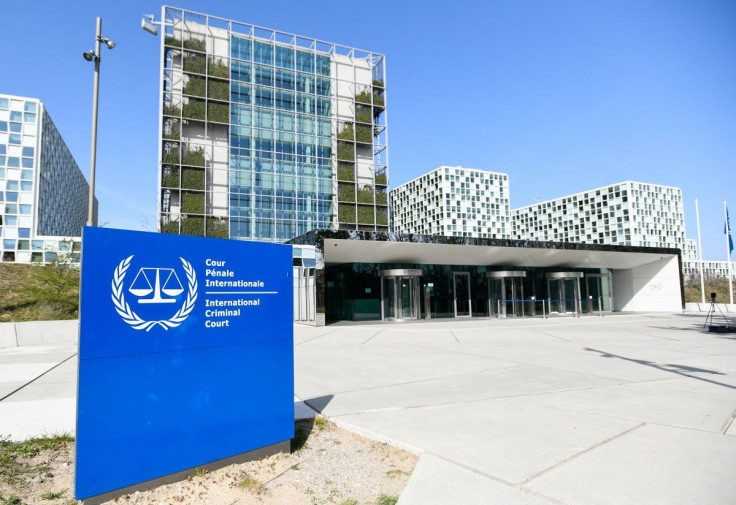Marcos Claims ICC Probe On Duterte Killings 'Threat' To PH Sovereignty, Coalition Pushes Back

KEY POINTS
- Philippine President Marcos called the ICC's investigation of Duterte's drug war an "intrusion"
- The Philippine ICC Coalition claimed Marcos' remarks on the drug war investigation were inaccurate
- Marcos urged to lead the drug war investigations if he doesn't want the ICC to intervene
Philippine President Ferdinand Marcos Jr. claimed that the ongoing investigation of the International Criminal Court (ICC) into the bloody anti-illegal drugs campaign of his predecessor, former President Rodrigo Duterte, was a "threat to our sovereignty."
Marcos, a close ally of Duterte, argued that the ICC has no jurisdiction over the Philippines, and any foreign investigation would be regarded as an "intrusion."
"There are many questions about their jurisdiction and what we in the Philippines regard as an intrusion into our internal matters and a threat to our sovereignty," Marcos said, Philippine online news website Philstar reported.
The Philippine president also said that his country doesn't need assistance from foreign countries as it investigates alleged extrajudicial killings, arguing that "we are not colonies anymore of these former imperialists."
The Philippine Coalition for the International Criminal Court (PCICC) hits back at Marcos, calling the president's remarks inaccurate.
Ray Paolo Santiago, a Filipino lawyer and co-chair of the PCICC, explained that the Philippines has committed to cooperating with ICC despite its withdrawal from the Rome Statute.
"One of our commitments, when we accepted the jurisdiction of the ICC even before, was that we will continue to cooperate and continue any cooperation and any coordination as long as there is a proceeding that has been pending at the time of the withdrawal," Santiago said, ABS-CBN News reported.
Santiago challenged Marcos to order his government to lead investigations into the unexplained deaths during the war on drugs if he didn't want the ICC to investigate.
Marcos' defiance came after the ICC judges granted Prosecutor Karim Khan's request to reactivate his investigation into alleged crimes against humanity committed during Duterte's anti-illegal drugs police operations, following its suspension in 2021 when the Philippines said it was already investigating the crimes.
"The various domestic initiatives and proceedings, assessed collectively, do not amount to tangible, concrete and progressive investigative steps in a way that would sufficiently mirror the court's investigation," the judges said, according to the Associated Press.
The controversy over the ICC's jurisdiction began in 2018 when Duterte announced that the Philippines would withdraw from the treaty that established the court, just weeks after a preliminary inquiry into the alleged extrajudicial killings was opened by the court's Office of the Prosecutor.
The New York Times reported that Duterte told the ICC that the Philippine government had a functioning justice system.
The former Philippine president also warned then-ICC Prosecutor Fatou Bensouda that she would be arrested if she went to the Philippines to investigate.
The Philippines formally left the Rome Statute on March 16, 2019.
Two complaints were filed against Duterte at the ICC between 2017 and 2018, accusing him and other Philippine officials of committing crimes against humanity in relation to the war on drugs.
According to government data, from July 2016 to March 2022, Duterte's anti-illegal drug campaign killed 6,229 alleged drug personalities.
But according to the data filed by ICC complainants and other human rights groups, about 12,000 to 30,000 Filipinos have perished during the bloody police operations.

© Copyright IBTimes 2025. All rights reserved.






















